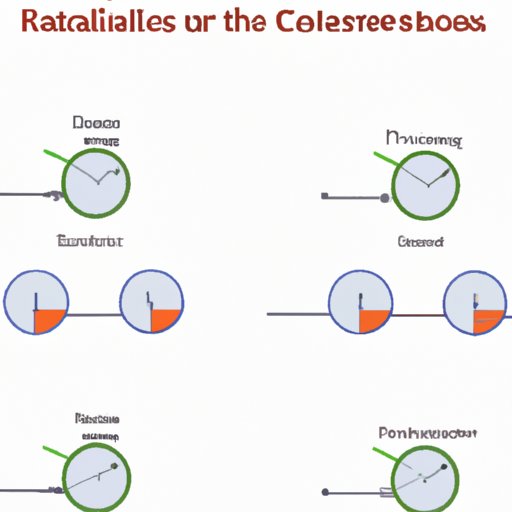Introduction
In the world of science, controls play an integral role in successful experimentation. But what exactly are controls in a science experiment? Simply put, a control is a tool used to eliminate any variables that may affect the outcome of an experiment. By using a control, scientists can isolate the variables they are studying and get accurate results. This article will explore the role and importance of controls in scientific experiments, providing an in-depth look at how they can be used to ensure accurate results.

Exploring the Role of Controls in Scientific Experiments
To understand the role of controls in scientific experiments, it’s important to first understand what they are and how they work. A control is essentially a baseline for comparison; it helps to eliminate any outside factors that could impact the results of an experiment. For example, if a scientist wants to study the effects of a certain drug on heart rate, they would use a control group to compare their results with those of the test group. By using a control, the scientist can accurately measure the effect of the drug on heart rate without having to consider any other variables.
Understanding the basics of scientific experimentation is key to utilizing controls for successful experiments. The goal of any scientific experiment is to test a hypothesis or answer a question. To do this, scientists must carefully design their experiments to eliminate as many outside variables as possible. By using controls, scientists can narrow down the scope of their experiments and focus on the specific variable they are testing.
A guide to utilizing controls for successful scientific experiments begins with understanding the purpose of the experiment. Once the purpose is determined, the next step is to determine which type of control will best serve the experiment’s purpose. Depending on the type of experiment being conducted, different types of controls may be used. Some of the most common types of controls used in scientific experiments include placebo controls, positive controls, and negative controls.
The Significance of Controls in Scientific Experiments: Why They Matter
Now that we have a better understanding of the role of controls in scientific experiments, it’s time to explore why they are so important. Controls help to reduce variables and increase accuracy of results. Without controls, it would be impossible to accurately measure the effects of a particular variable on an experiment’s results. By using controls, scientists can make sure that only the variable they are testing has an effect on the results of the experiment.
Examples of different types of controls used in scientific experiments can vary depending on the type of experiment being conducted. Placebo controls are commonly used in medical trials to measure the effectiveness of a drug or treatment. Positive controls are used to verify the validity of a test, while negative controls are used to check for false positives. Each type of control has its own unique purpose and should be used accordingly.
The benefits of using controls in scientific experiments are numerous. Controls help to reduce variables and ensure accuracy of results. They also allow scientists to conduct more precise experiments, as they are able to isolate the variable they are testing and measure its effects on the results. Finally, controls help to reduce bias by eliminating any potential sources of error that could influence the results of the experiment.
Conclusion
In conclusion, controls play an essential role in successful scientific experiments. They help to reduce variables and increase accuracy of results by isolating the variable being tested. Different types of controls can be used depending on the type of experiment being conducted, and each type of control has its own unique purpose. Ultimately, controls help to ensure the validity of scientific experiments and enable scientists to draw accurate conclusions from their results.
In summary, controls are an indispensable tool for conducting successful scientific experiments. By using controls, scientists can isolate the variable they are testing and measure its effects on the results. This enables them to accurately measure the effects of a particular variable and draw valid conclusions from their experiments. Controls are essential for ensuring the accuracy and validity of scientific experiments, and should not be overlooked when designing and conducting experiments.
(Note: Is this article not meeting your expectations? Do you have knowledge or insights to share? Unlock new opportunities and expand your reach by joining our authors team. Click Registration to join us and share your expertise with our readers.)
